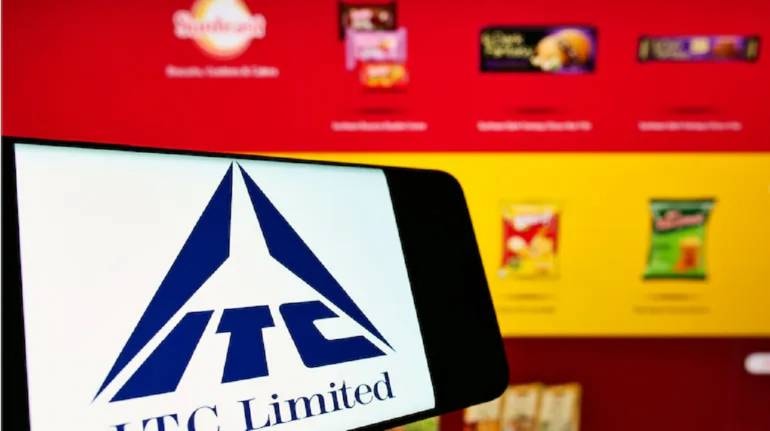
ITC says focused on scaling FMCG business, posts revenue at Rs 19,000 crore in FY23
ITC Ltd, a conglomerate in India, has announced its annual report, highlighting the strength of its FMCG (Fast Moving Consumer Goods) portfolio. The report states that ITC’s FMCG brands, comprising more than 25 brands, represent an annual consumer spend of approximately Rs 29,000 crore. These brands have a reach of over 230 million households across India.
In the financial year 2022-23, ITC generated a revenue of Rs 19,000 crore from its FMCG business. The company emphasizes its focus on scaling up the FMCG segment by leveraging strong growth platforms and a future-ready portfolio. They attribute their success to purpose-led brands, world-class quality, deep consumer insights, cutting-edge innovation, and an agile and efficient supply chain.
According to the report, ITC has outperformed the industry in both urban and rural markets, reflecting its ability to capture market share and meet consumer demands. Furthermore, the company launched 90 new products in the fiscal year 2022-23, indicating its commitment to innovation and expanding its product offerings.
ITC’s annual report highlights its dedication to building a robust FMCG business and reaffirms its growth trajectory in the competitive consumer goods market. By leveraging its strengths, consumer insights, and supply chain efficiencies, ITC aims to continue scaling up its FMCG business and delivering value to its customers across the country.
Despite the challenging conditions faced during the year, ITC’s FMCG businesses managed to achieve growth rates higher than the industry average in both urban and rural markets. This growth was attributed to several key factors outlined in the regulatory filing.
ITC highlighted the expansion of its distribution footprint as a contributing factor to its success. By increasing the reach of its products, the company was able to tap into new markets and cater to a wider consumer base.
Superior last mile execution, which refers to the efficiency and effectiveness of delivering products to the end consumer, was also identified as a driving force behind ITC’s growth. By ensuring smooth and reliable delivery, the company was able to meet customer demands and maintain strong customer satisfaction.
Deep consumer insights played a crucial role in ITC’s growth strategy. By understanding consumer preferences, needs, and trends, the company was able to develop and offer products that resonated with its target audience. This customer-centric approach allowed ITC to stay ahead of market dynamics and offer relevant solutions to consumers.
Purposeful innovation was another factor highlighted in the regulatory filing. By continuously investing in research and development, ITC was able to introduce new and innovative products that met the evolving needs of consumers. This focus on innovation helped the company stay competitive and differentiate itself in the market.

Lastly, portfolio premiumization was mentioned as a growth driver. This refers to the strategic positioning of products in higher-value segments, enabling the company to capture higher margins and drive revenue growth.
Overall, ITC’s FMCG businesses demonstrated resilience and achieved growth by leveraging their distribution network, execution capabilities, consumer insights, innovation, and portfolio premiumization.
These factors collectively contributed to the company’s ability to outperform the industry and navigate through challenging market conditions. According to the statement, ITC’s FMCG businesses are actively making strategic investments to build categories that will be crucial for the future. The company is committed to identifying and capitalizing on growth opportunities in emerging markets and product categories.
In addition to organic growth, ITC is also exploring “value accretive” opportunities through acquisitions, joint ventures, and collaborations. These initiatives aim to accelerate growth and create value for the company.
ITC’s future strategy, known as ITC Next, centres around key pillars that ensure readiness for the evolving market landscape. The focus areas include maintaining a future-ready portfolio, which involves continuously assessing and adapting the product offerings to meet changing consumer preferences and market trends.
Premiumization is another important aspect of ITC’s strategy. By offering high-quality, premium products, the company aims to capture value and cater to the evolving needs of consumers who seek enhanced experiences and are willing to pay a premium.
Innovation plays a vital role in ITC’s approach, as it allows the company to stay ahead of the competition and deliver innovative solutions to consumers. This includes exploring new product formats, leveraging technology, and embracing digital adoption to enhance customer engagement and drive growth.
Market penetration is also a key focus for ITC. The company aims to expand its presence and reach into untapped domestic and international markets to capture new customer segments and drive sales growth.
By aligning with these strategic pillars, ITC aims to position itself for sustained growth, value creation, and market leadership in the FMCG sector. The company’s focus on building a future-ready portfolio, driving premiumization, fostering innovation, embracing digital transformation, and expanding market penetration demonstrates its commitment to staying at the forefront of industry trends and evolving consumer demands.ITC highlighted the expansion of its FMCG business’s export footprint, which now extends to more than 60 countries. The company has been actively exploring strategic opportunities in proximal markets as a potential growth vector in the future.
The Production-Linked Incentive (PLI) scheme, introduced by the Indian government to promote manufacturing and exports in specific sectors, has provided an additional boost to ITC’s exports in categories such as biscuits & cakes, snacks, dairy, and ready-to-eat products. The scheme has incentivized ITC to further enhance its export capabilities and capitalize on the growing demand for these categories in international markets.
By expanding its export reach and leveraging the benefits of the PLI scheme, ITC aims to tap into new markets and increase its presence globally. This strategic approach helps diversify revenue streams and positions ITC as a key player in the international FMCG arena.
ITC’s focus on exports and exploring opportunities in proximal markets demonstrates its commitment to expanding its global footprint and driving growth through international trade. By capitalizing on favorable schemes and leveraging its strengths, the company aims to strengthen its position as a leading player in the FMCG sector, both domestically and globally.
ITC highlighted the strength and expansion of its multi-channel distribution network, which plays a vital role in ensuring the availability of its products to consumers. The company stated that its distribution network has been further strengthened during the year.
ITC’s distribution network spans nearly seven million retail outlets, with over one-third servicing directly. This direct servicing allows for efficient and effective distribution, ensuring that ITC products reach consumers promptly.

During the year, ITC emphasized the significance of market coverage, stating that it increased to approximately twice the levels observed before the pandemic. This increase in market coverage indicates the company’s efforts to expand its reach and penetrate new markets. By increasing market coverage, ITC can access a larger consumer base and increase the availability of its products across a wider geographical area.
The expansion and strengthening of ITC’s distribution network reflect the company’s commitment to meeting consumer demands and enhancing accessibility to its products. By ensuring a robust and efficient distribution system, ITC can effectively reach consumers and maintain a strong market presence.
A well-established and extensive distribution network is crucial in the FMCG industry, as it enables companies to efficiently deliver their products to retail outlets and ultimately to consumers. ITC’s focus on strengthening its distribution network indicates its dedication to optimizing the availability and reach of its products, supporting its growth objectives, and meeting the evolving needs of consumers.
During the financial year, ITC observed a channel shift in urban markets, with modern trade and e-commerce growth. In response, ITC implemented market-specific interventions to strengthen its presence in rural markets. The company recognized the importance of adapting to evolving market dynamics and catering to the specific needs of different consumer segments.
Over the past five years, ITC has achieved significant growth in market and outlet coverage. Market coverage has expanded 3.5 times, indicating the company’s efforts to reach more geographical areas and tap into new markets. Additionally, outlet coverage has increased 1.5 times, reflecting ITC’s focus on expanding its retail presence and making its products more accessible to consumers.

The network of stockists, which plays a crucial role in the distribution process, has also witnessed substantial growth. ITC’s stockist network has expanded 8.3 times over the same period, indicating the company’s commitment to strengthening its distribution channels and ensuring the widespread availability of its products.
In line with the growing influence of e-commerce, ITC has launched its exclusive Direct-to-Consumer (D2C) platform called the “ITC e-store.” The e-store is operational in over 24,000 pin codes, providing consumers with a convenient and direct channel to access ITC’s products. Additionally, ITC has partnered with the Open Network for Digital Commerce (ONDC), further enhancing its reach and digital connectivity.
These initiatives reflect ITC’s proactive approach to embracing digitalization and leveraging modern trade and e-commerce channels. By expanding its online presence and partnering with relevant platforms, ITC aims to tap into the growing e-commerce market and cater to the evolving shopping preferences of consumers.
Overall, ITC’s focus on market-specific interventions, expansion in rural markets, and embracing digital commerce underscores its commitment to adapting to changing market dynamics and enhancing its market reach. These initiatives enable ITC to connect with a broader consumer base and maintain its competitive edge in the FMCG sector.




